Click to Skip Ahead
The Rabies virus is a scary and deadly force of nature. Once contracted, this disease is virtually always fatal in animals. Unfortunately, it is quite easy for our dogs and cats to come into contact with wild animals, or unvaccinated domesticated animals, that carry this virus. One bite or the passing of saliva can easily cause our dear pets to become infected.
Luckily, there is a rabies vaccination available that dogs can receive as early as 12 weeks of age as part of their normal vaccination schedule. Like with any vaccine, there is a potential for side effects to show themselves after your dog has been vaccinated for rabies. Here’s a look at the most common side effects, and even a few that are rarer, so you know what to look for when your dog receives their rabies vaccinations:

The 4 Common Rabies Vaccine Side Effects in Dogs:
Not all dogs are the same; that’s why not every reaction to the rabies vaccination is the same. Here’s a look at the most common side effects dogs may experience after their first, or any, of their scheduled rabies vaccines or boosters.
1. Swelling or Soreness of the Injection Site
Possibly the most common side effects your dog may experience after having their rabies vaccine, or any vaccine for that matter, is swelling or soreness at the injection site. If this occurs with your dog it should subside within a couple of days. If it persists longer, causes significant pain, or worsens, contact your veterinarian.
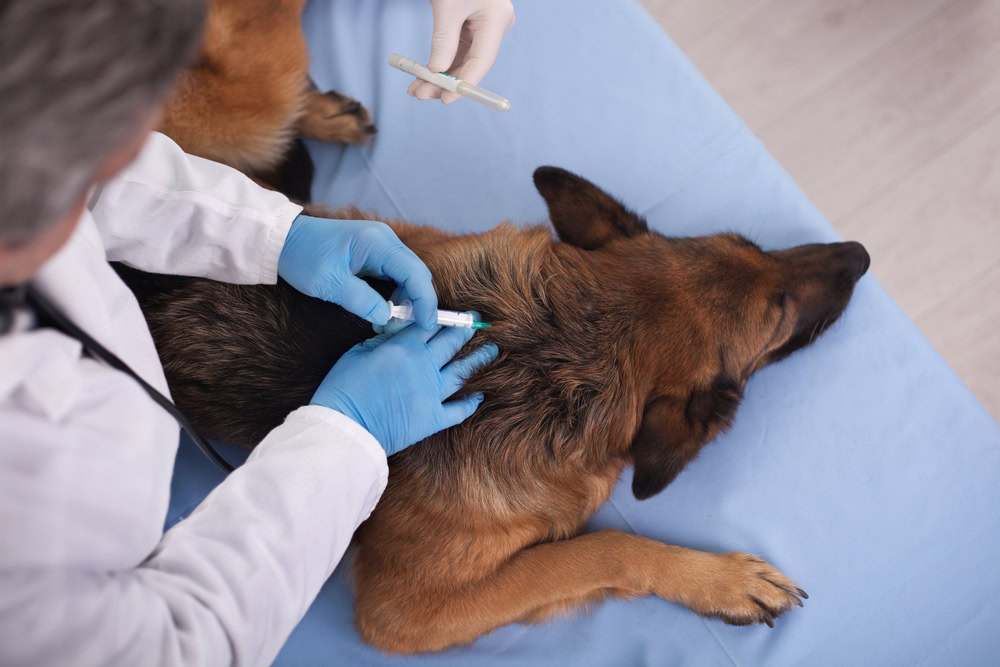
2. Mild Fever
When one of our pets presents with a fever, our immediate reaction is to panic. When a mild fever happens after the rabies vaccine has been given, it’s best to monitor the situation and remain calm. A mild fever is common after having the rabies vaccine. Like with most side effects, it will pass in a few days.
If not, reach out to your veterinarian for advice on what steps to take or whether you should bring your dog in for a checkup.
3. Loss of Appetite
Loss of appetite is fairly normal after having a vaccine. The rabies shot is no different. Your dog may eat a bit less in the hours following their shot, or they may be picky with their food for a couple of days. Simply give them time to feel better. As always, offer your pet food and let them eat what they want.
They should be back up to par in no time and back to their regular feeding schedule, but if not call your vet for advice.
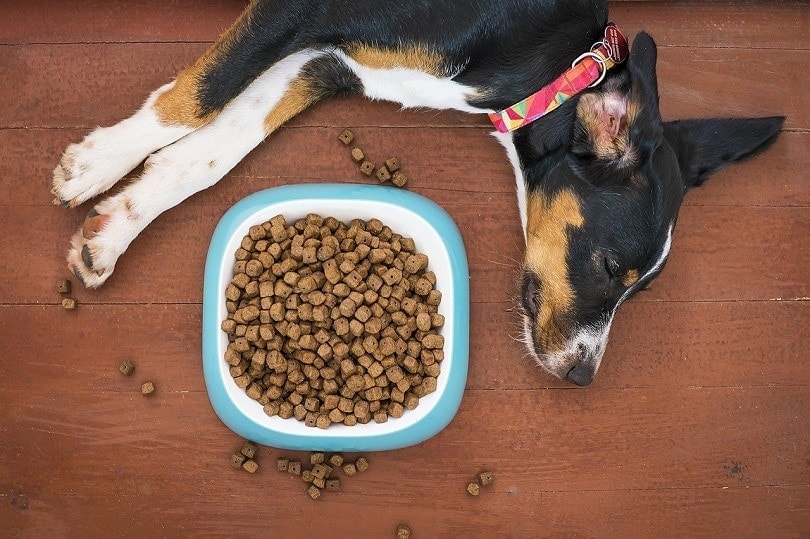
4. Tiredness
After a trip to the veterinarian, especially one where the rabies shot is given, your dog may feel like they need to rest more. It’s completely normal and no reason to panic. Allow your dog the time they need to recover from the excitement of the trip and the vaccine itself.
They’ll be ready to play in a few hours or a couple of days but seek veterinary advice if they are excessively lethargic or don’t return to normal quickly.

The 4 Rare Side Effects
Some dogs may exhibit the more common side effects mentioned above after receiving their rabies shots while others may feel a bit worse. Here’s a look at other side effects that may be experienced that are rare but should still be watched for.
5. Vomiting and Diarrhea
While vomiting and diarrhea aren’t common occurrences after a rabies shot, they can happen. It all depends on the dog itself. If your dog shows these side effects, your dog may need a bland diet or some probiotics but you should contact your vet for advice.
These can be signs your dog is having an allergic reaction so you should monitor them closely for other signs of a reaction.
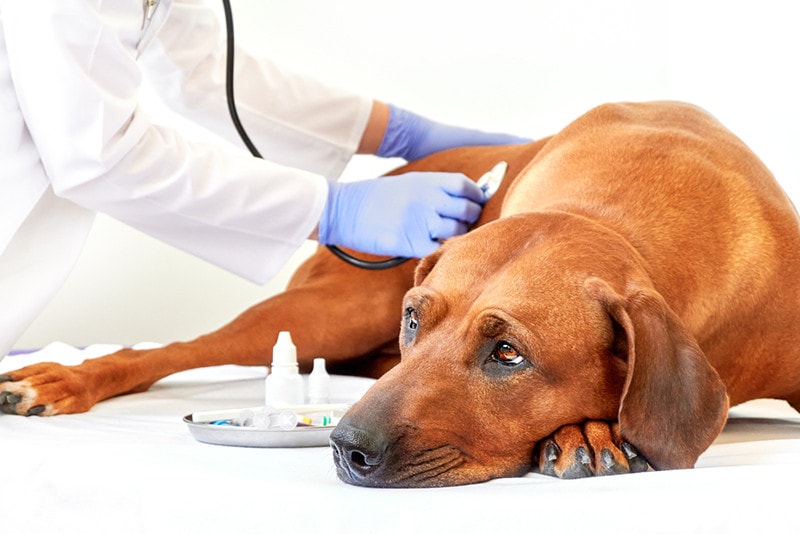
6. Hives
If you notice bumps on your dog’s body after having the rabies vaccination, they could be suffering from hives. While relatively safe, hives is a sign of an allergic reaction and can be quite itchy and cause a bit of discomfort. If the first time your dog experiences this is after the rabies vaccine, consult your veterinarian so they are aware of the issue in the future.
Typically your veterinarian will administer an antihistamine and/or an anti-inflammatory to reduce the discomfort.
7. Face Swelling
Some dog owners have reported that their pets have suffered from slight swelling of the face, eyes, and muzzle after having the vaccine administered. This is a sign of an allergic reaction and, as always, should be reported to your vet. In most cases, this passes in a few hours once your vet prescribes medication.
You should monitor your dog closely at home until it subsides as unfortunately, sometimes the swelling progresses to interfere with the dog’s airways. In this rare case, your veterinarian may hospitalize your dog for further treatment.

8. Lethargy
Lethargy is not the same as being tired. It is most notably a decrease in the want to be active. You may notice that your dog is lying around more than usual and doesn’t want to go for walks or other normal activities.
Reach out to a veterinarian to discuss it and decide whether you should take your dog in for an exam.
 Anaphylaxis
Anaphylaxis
Anaphylaxis, or a severe allergic reaction, is extremely rare in response to a vaccine, occurring in less than 1 in 10,000 cases. In most cases, this reaction will show itself within minutes of administering the rabies vaccine but can be delayed for up to 48 hours. It can lead to rapid or sluggish heart rate, difficulty breathing, low blood pressure, color changes of the gums, and vomiting.
Medications, fluid therapy, and potentially oxygen can be needed to help with the life-threatening allergic reaction. So, if you feel your dog is suffering from anaphylaxis, get them to the vet immediately.
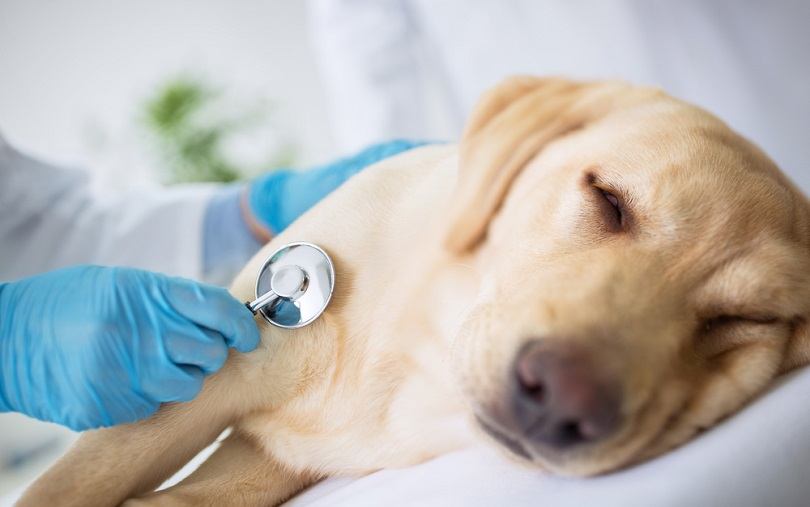

Final Thoughts
A rabies vaccine is an important tool used to keep your dog healthy and protected throughout their lives. While it’s normal for pet parents to be concerned when it comes to having their dog vaccinated, the side effects of this vaccine are normally mild and will pass in a few days.
As always, ask your vet for advice if you see your dog show side effects that are concerning, or if you fear they are suffering from anaphylaxis, take your pet to the veterinarian immediately.
- Related Read: How Do Dogs Get Rabies?
Featured Image Credit: PeopleImages.com – Yuri A, Shutterstock
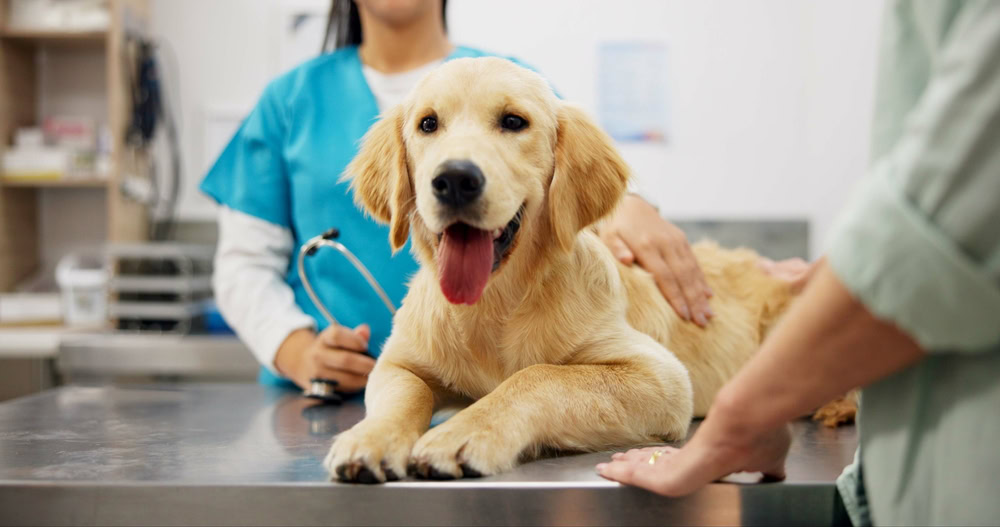






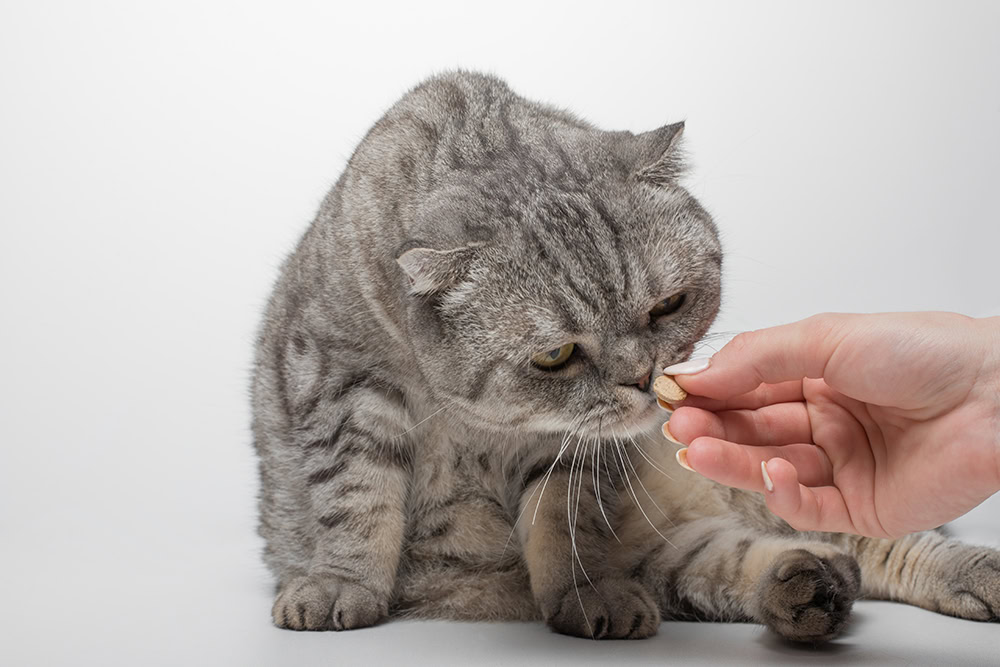
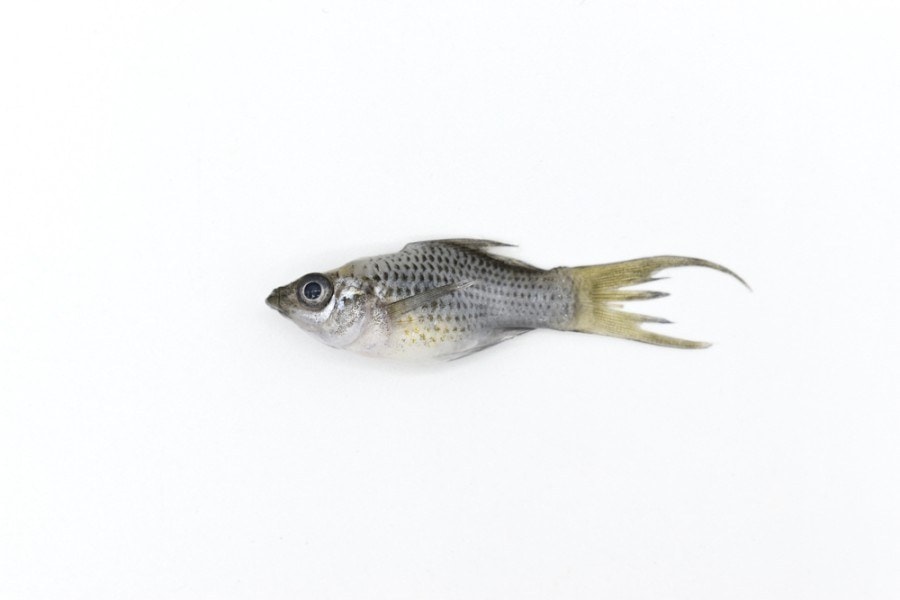




2 Responses
thank you, my question is what is the name of the injection give to dog for prevention
Hello,
thank you for your question. If we understand correctly, you would like to know the brand names of some rabies vaccines on the market. The name of the vaccine depends mainly on the manufacturer of the vaccine or its type.
Namely, you can choose between IMRAB, NOBIVAC, RABVAC, and DEFENSOR. These vaccines are administered by licensed veterinarians and are required by law in most states. Always consult with your veterinarian to ensure the appropriate vaccine is chosen for your dog’s needs and to comply with local regulations.
Hope this helps. Best wishes!